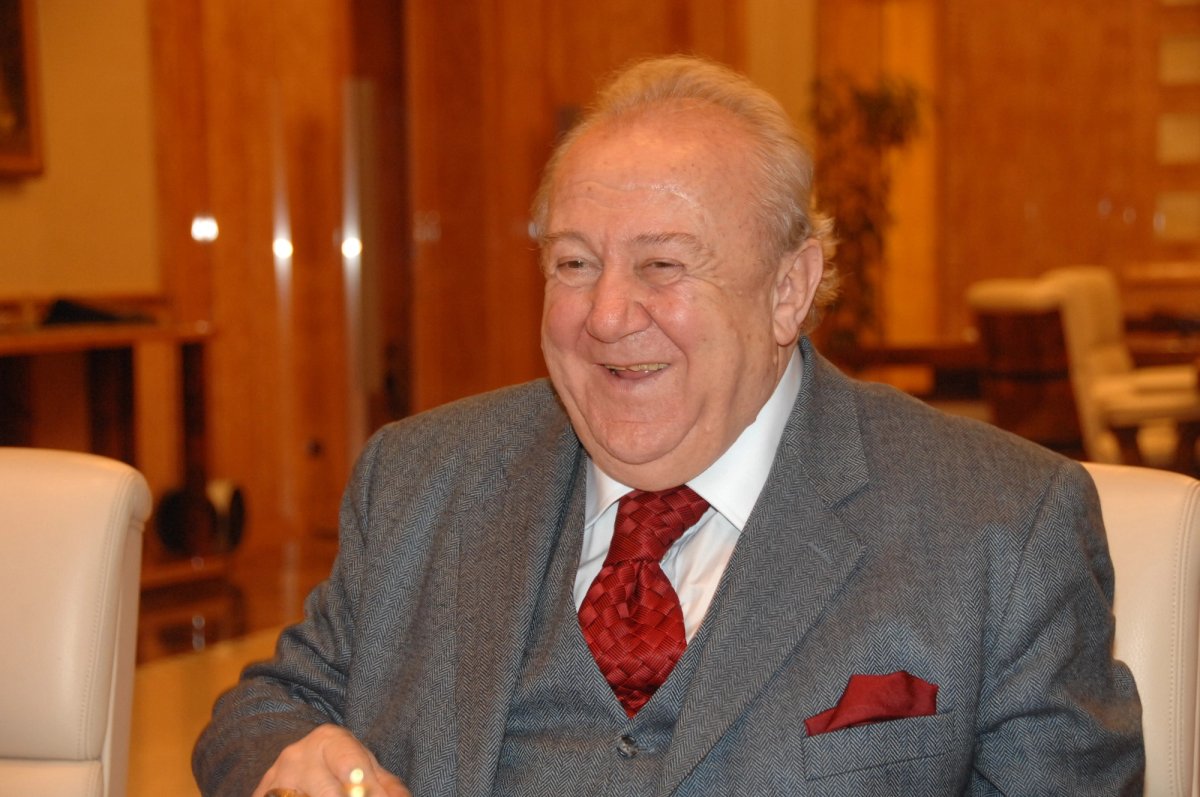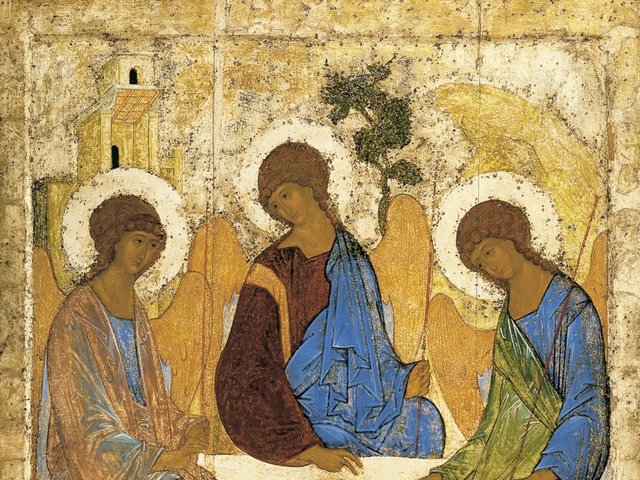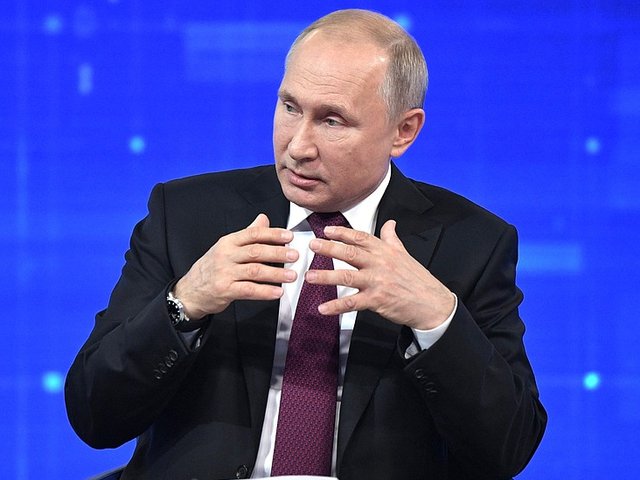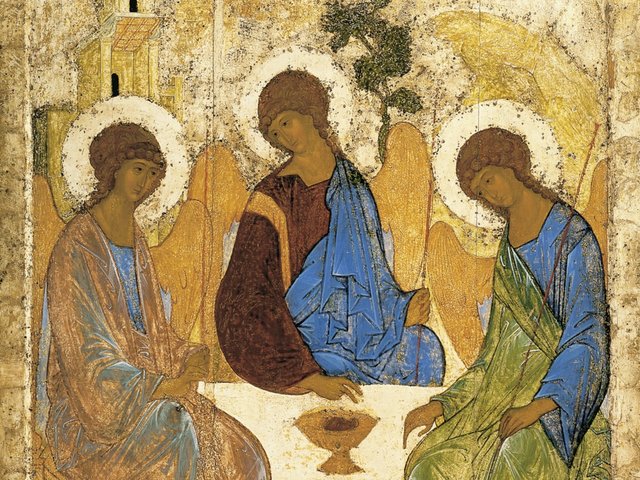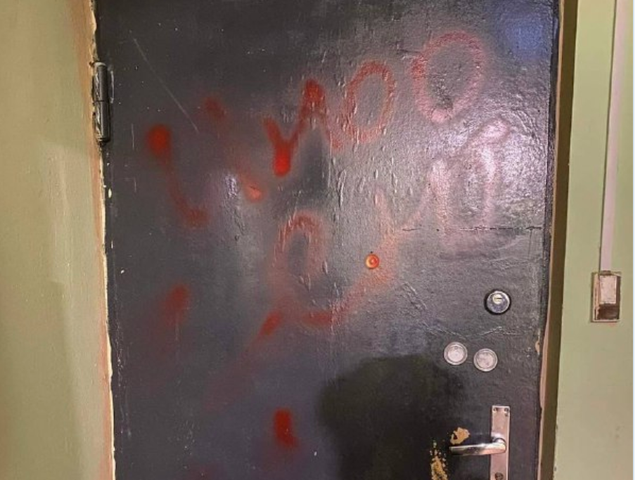Zurab Tsereteli, a Georgian-born painter and sculptor who was for decades a favourite of Soviet and Russian government officials and known for his statues installed around the world died on 22 April at age 91, Russian news agencies reported.
Tsereteli, who was often described as being a businessman as well as an artist, had been serving as president of the Russian Academy of Arts since 1997 and controlled multiple museum spaces in Moscow. Two of them were dedicated to his own art, one adjacent to the academy headquarters, another his studio, attached to a pre-revolutionary mansion in Moscow where he hosted dinner parties with Gypsy singers.
A huge walk-in sculptural apple by the artist, representing “knowledge of good and evil”, is at the centre of Tsereteli’s gallery at the academy. It depicts Adam and Eve with erotic scenes inside the apple, and is often at the centre of banquets held at the gallery. The Moscow Museum of Modern Art, which he opened in 1999 with the support of the Moscow city government, is run by his grandson, Vasili.
Moscow monument to Peter the Great
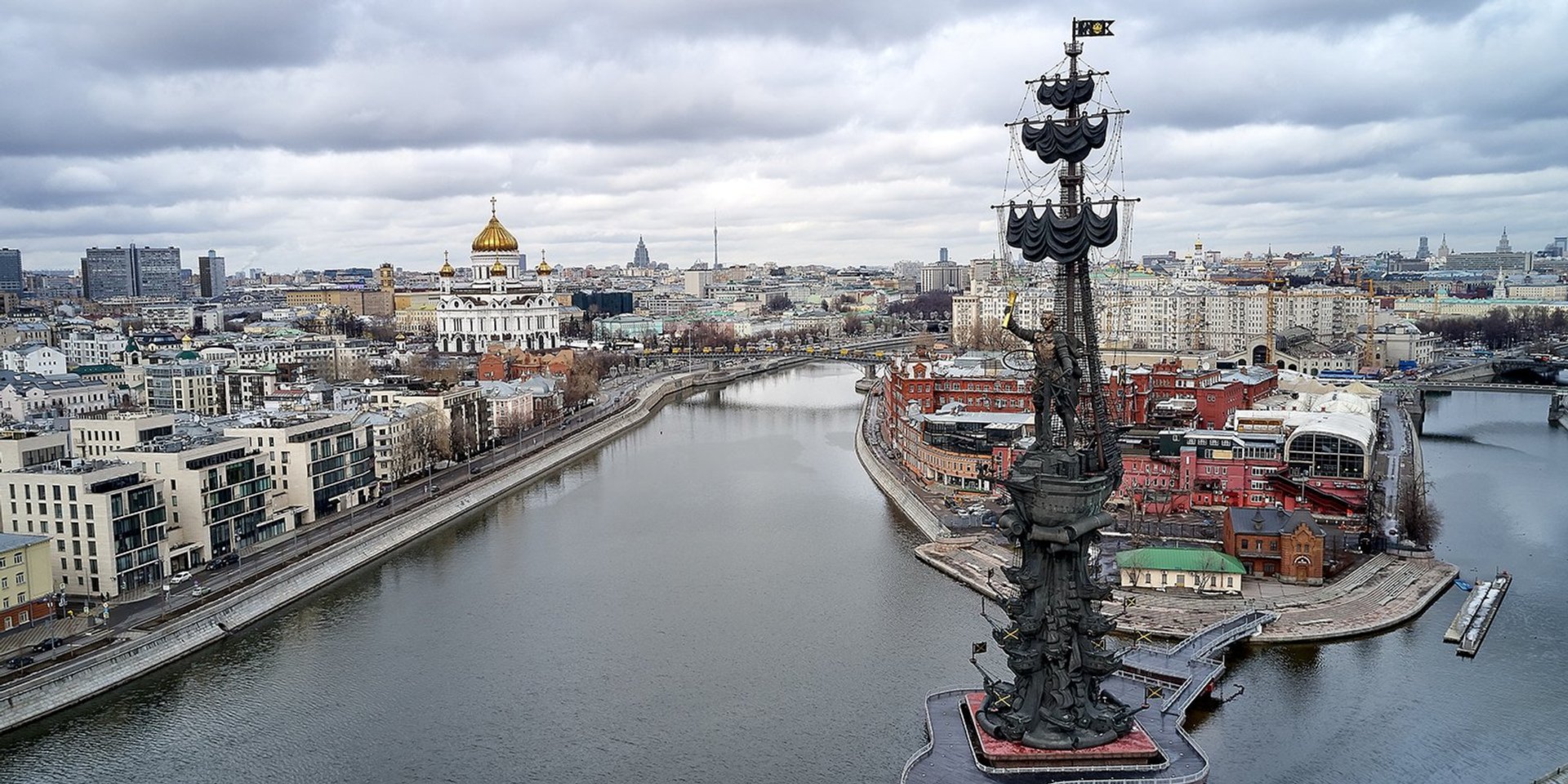
Zurab Tsereteli's statue of Peter the Great in Moscow Image: Mos.ru
Tsereteli’s 98m-tall, 1,000-ton monument to Peter the Great, which he created out of stainless steel, bronze and copper in 1997 near Christ the Saviour Cathedral in view of the Kremlin, became a flashpoint of protest by critics who said it distorted the Russian capital’s cityscape. The monument became a harbinger of the rule of Vladimir Putin, who came to power in 2000 and looks to the Russian tsar as a model of power.
Tsereteli oversaw the artistic design, including sculptural work and frescoes, during reconstruction of the cathedral, which was blown up under Stalin’s orders in 1931. It was rebuilt in the 1990s by Yuri Luzhkov, who controlled the city as mayor for nearly 20 years, with mandatory funding by Russia’s burgeoning class of post-Soviet oligarchs. In 2012 it was the site of feminist performance art group Pussy Riot’s “punk prayer” against Putin and Patriarch Kirill of the Russian Orthodox Church. The funeral service for Tsereteli was held at the cathedral on Wednesday.
Putin, in a condolence telegram released by the Kremlin, described Tsereteli as having lived in “selfless service to art”.
Memorial services will be held in Tbilisi, the capital of Georgia, where he was born in 1934 and had family roots in Georgian aristocracy, at the Museum of Modern Art that he founded there in 2012. He will be buried at the city’s Didube Pantheon, alongside other prominent cultural figures.
Tsereteli, who graduated from the Tbilisi Academy of Arts, built an art empire as the decorator of important Soviet hotels, including the Yalta Intourist in Crimea, where he also built a monument depicting the historic meeting there of Winston Churchill, Franklin D. Roosevelt and Joseph Stalin.
He was the chief artist of the 1980 Moscow Olympic Games. Early in his artistic career, he designed futuristic bus stops in Abkhazia, then a coastal resort region within Georgia. He described meeting Marc Chagall and Pablo Picasso and witnessing them at work in their Paris studios in the 1960s. His ability to travel was evidence of his powerful connections.
Among his monumental works placed internationally are Good Defeats Evil (St. George and the Dragon), presented by the USSR to the UN on its 45th anniversary in 1990 and Tear of Grief in Bayonne, New Jersey honouring victims of the 9/11 and 1993 terrorist attacks on the World Trade Center in New York. The dragon of the sculpture at the UN is made from the shards of dismantled Soviet SS-20 and an American Pershing II missiles.
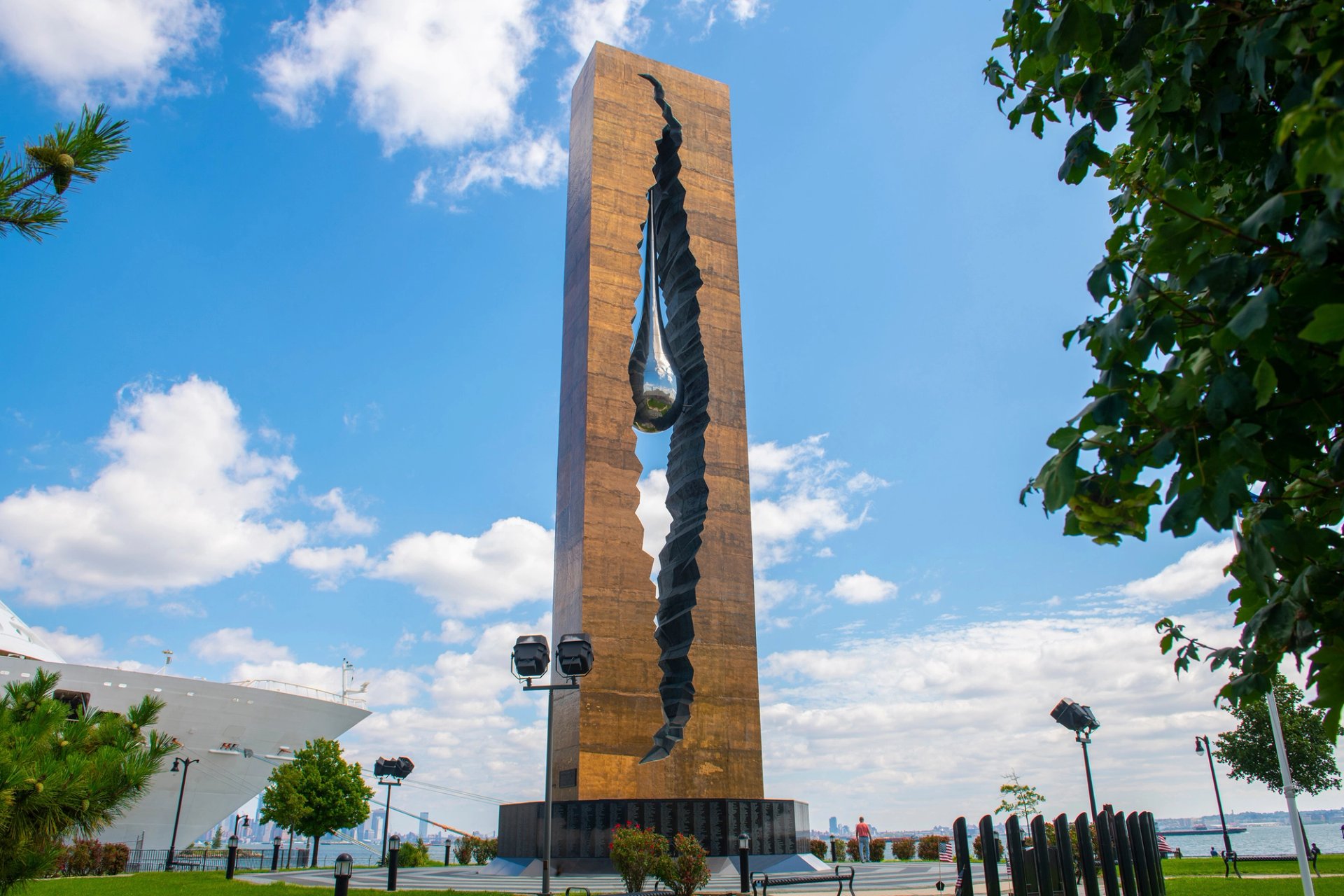
Zurab Tsereteli's 9/11 Memorial titled Tear of Grief in the city of Bayonne, New Jersey
Strong supporter of Vladimir Putin
In social media postings after Tsereteli’s death, his personal kindness to ailing and impoverished artists was noted, as was his continued support of the Putin regime. Aleksandr Khinshtein, the acting governor of the Kursk region, which borders Ukraine, reported on his Telegram channel that Tsereteli had prepared the design for a medal honouring the “liberation of Sudzha”, a town in Kursk that was seized by Ukrainian forces last year and taken back by Russia last month.


